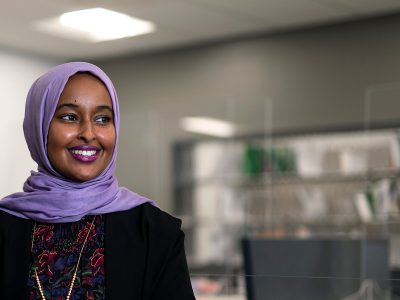Lead image by Alexpoison / iStock
By Dan Rubinstein
In August, when Alison Grant and her family moved from Ottawa to Vienna, Austria, the veteran diplomat was embarking on a significant challenge and coming full circle at the same time.
Canada’s new ambassador to Austria is one of five Carleton University alumni recently appointed to lead overseas missions, a demanding role in an era of tectonic geopolitical unrest. But it’s also a homecoming of sorts: Vienna was Grant’s very first diplomatic assignment, back in 1998, not long after she earned a master’s degree from Carleton’s Norman Paterson School of International Affairs (NPSIA).
“It was my first taste of diplomacy abroad and it set the tone for my career,” Grant says about the seven months she spent working with the Canadian delegation to the Organization for Security and Co-operation in Europe, a horizon broadening experience for someone from a small town in southwestern Ontario.
“I’ve been looking forward to getting back to Austria ever since then.”
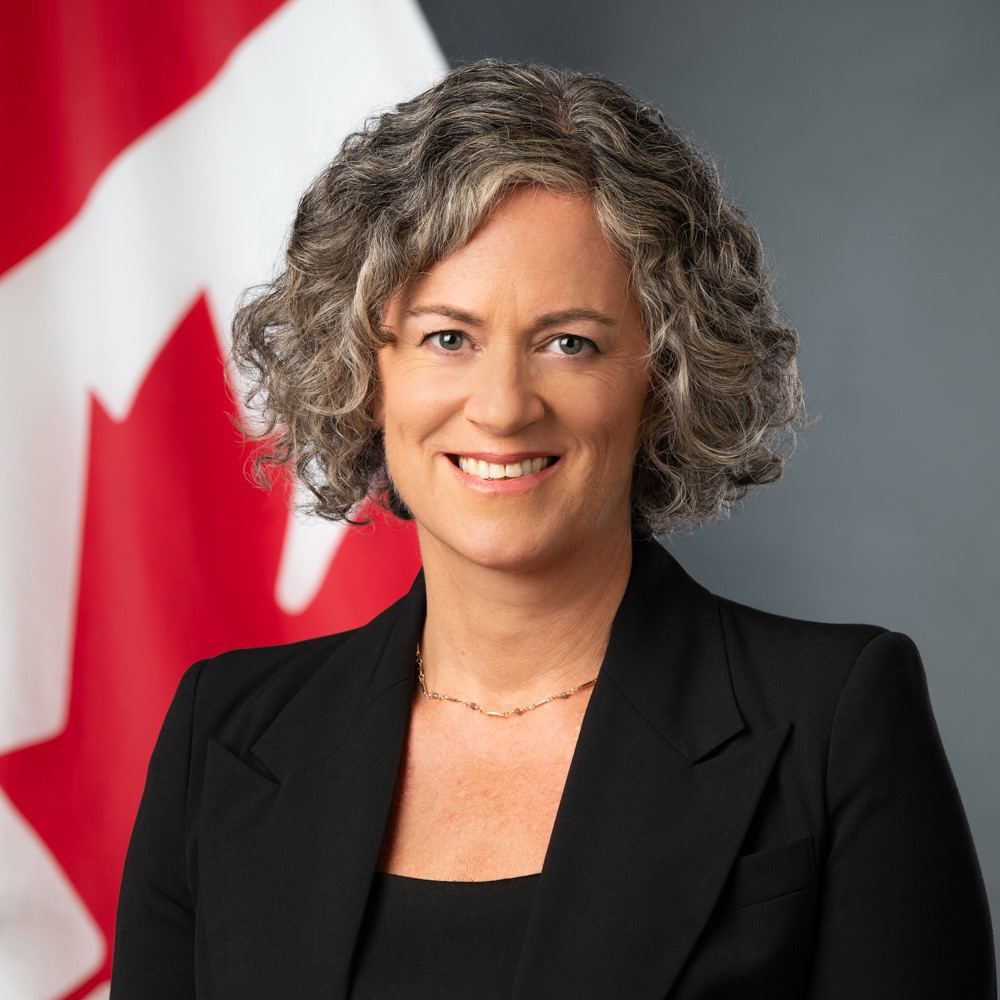
Her Excellency Alison Grant, Ambassador of Canada to Austria
Following that deployment, she has served at Canada’s embassy to Russia in Moscow, at the United Nations in New York City and at Canada’s embassy to Brazil, with increasingly senior positions at home in Ottawa in between, including the last two years as director general for international security and strategic affairs at Global Affairs Canada.
To prepare for this next step in her professional journey, Grant went through her department’s comprehensive month-long training program for outgoing ambassadors and sought guidance from Canada’s last three mission heads in Austria.
“We talked about what it’s like to run an embassy,” she says.
“What are the first type of meetings you want to hold? What are your objectives? How do you build a strong and healthy workplace culture within an embassy? These are some of the most important initial steps.”
But because Vienna is just a few hundred kilometres from the war in Ukraine, and because Canada’s relationships with European countries have newfound consequence amidst economic tension with the United States, Grant has to hit the ground running.
“The main problem for Canada is that the guardrails we’ve depended on for so many years are eroding, and this means that international relations are less predictable and there’s greater risk of escalation,” she says. “In this environment, I think priority number one for any ambassador is to build strong political and economic connections with countries that want basically the same things we do: security, prosperity and free trade as well as healthy, open and vibrant societies.”

A Deep Dive into International Relations
Before her first stint in Austria, where Grant was introduced to the nuances of diplomacy and multilateralism, she received a thorough education in international relations and foreign policy at Carleton.
The professors were incredibly knowledgeable and experienced, she recalls, and the seminars were interesting and relevant.
“I remember diving deep into policy issues and having dynamic debates with faculty and my fellow students,” she says.
“There was intense but respectful dialog, both in class and at the bar.”
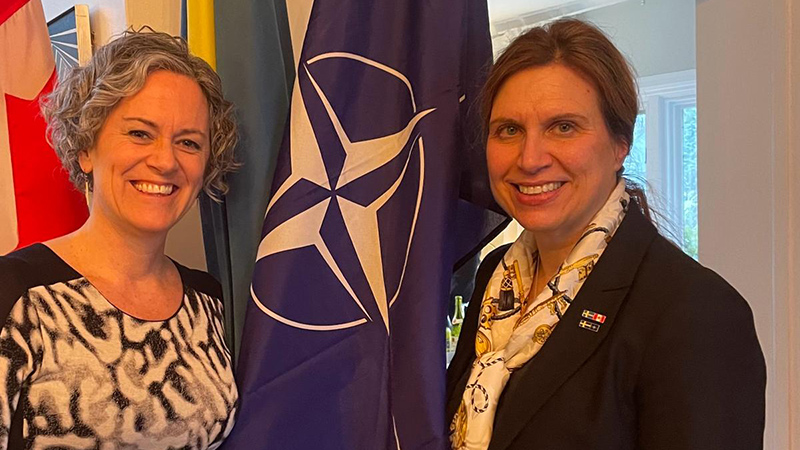
Ambassador Grant with Swedish Ambassador Signe Burgstaller
Grant’s studies concentrated on conflict analysis, which has remained a focus throughout much of her career, and she was torn between job offers from Canada’s foreign service and the UN after graduation.
“As a student, Alison stood out not only for her exceptional communication and analytical abilities, but also for her remarkable talent in fostering collaboration among her peers and demonstrating natural leadership,” says Fen Hampson, one her professors at the time and a Chancellor’s Professor at NPSIA today.
“Today, those qualities shine on the global stage as she assumes an important ambassadorship post in Vienna, representing Canada with the same poise, insight and dedication she exhibited here at Carleton.”
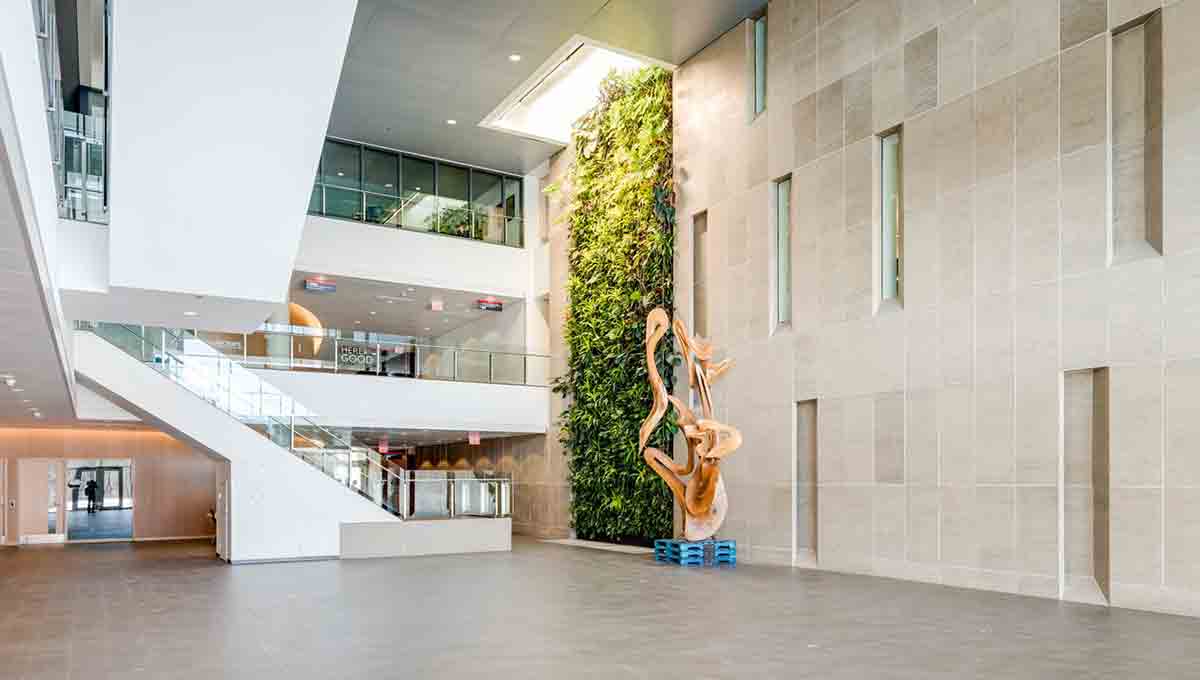
Paying it Forward to Faculty and Students
Grant has remained engaged with the university as an alumna, guest lecturing for courses at NPSIA and the Institute of European, Russian and Eurasian Studies (EURUS).
“She has worked throughout her career to pay it forward to our students and faculty members,” says political science professor Jeff Sahadeo. “She has attended classes for informal chats, given keynotes for regional studies conferences and met students for individual consultations. Many EURUS students started their careers working under Alison and unfailingly speak of the support given and skills obtained with her oversight.”
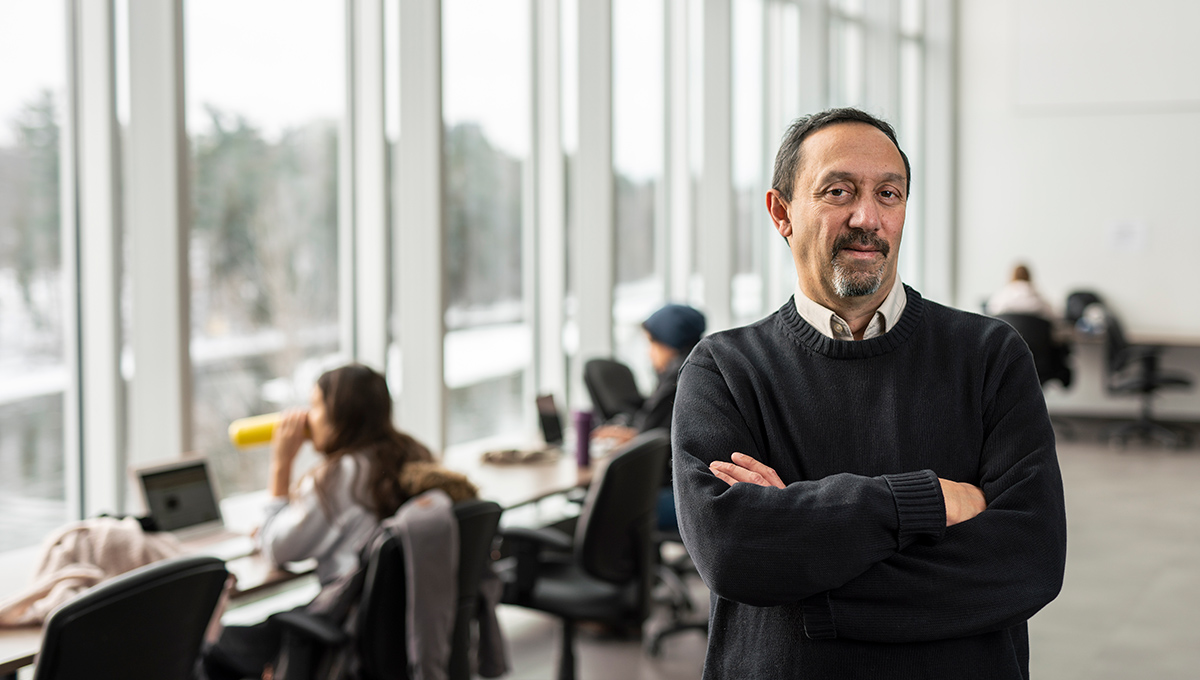
Prof. Jeff Sahadeo
Carleton graduates comprise a large percentage of the staff at Global Affairs Canada and other federal government departments that deal with international relations and diplomacy.
In the ambassadorial appointments announced this past July, Grant was promoted alongside alumni Craig Kowalik (Ecuador), Jean-Paul Lemieux (Switzerland), James Nickel (Vietnam) and Tara Scheurwater (Kuwait).
One must work their way up to these types of positions, of course, and Grant’s advice to current or prospective students who are interested in similar trajectories is to seek out international experience while at school. With support from Carleton International, she spent a year studying in Hungary during her master’s program, an opportunity Carleton continues to provide for students.
Grant also recommends reaching out to people working in this realm.
“You need to engage with policy practitioners — to talk to people with international experience,” she says.
“I spend a lot of time chatting with younger people about how to break into a field like foreign affairs. It can be a little opaque, so you have to build networks of contacts. It may seem daunting, but it’s really important if this is the type of career you have in mind.”
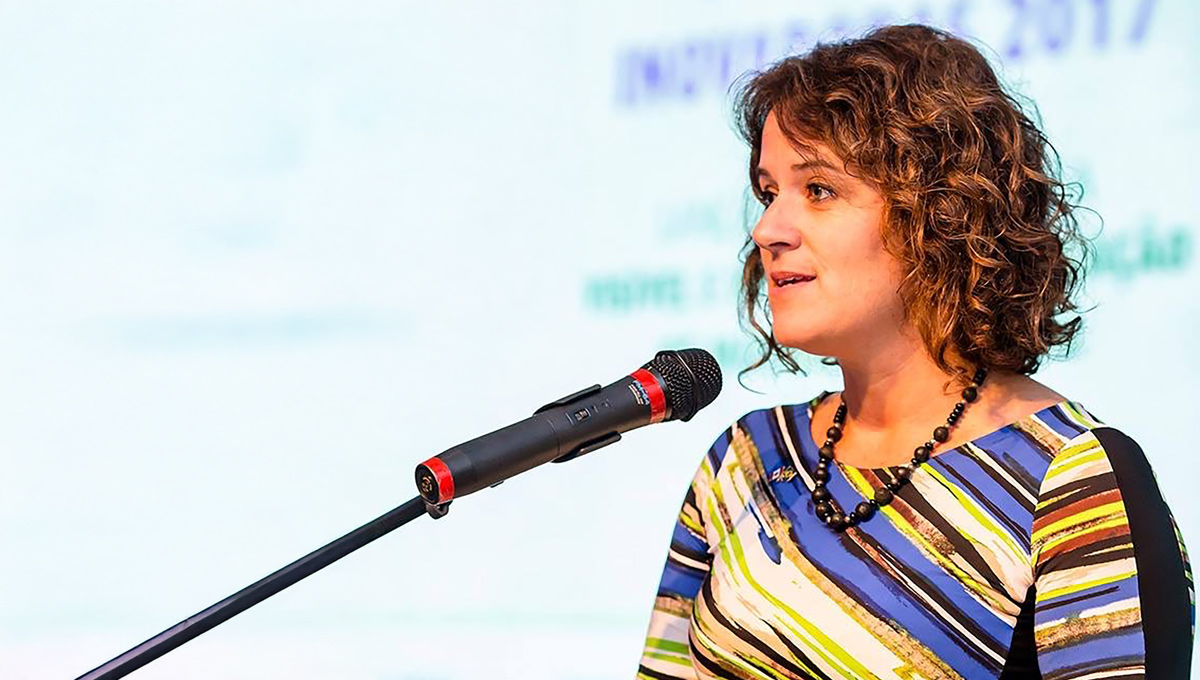
Wednesday, September 17, 2025 in Alumni, Government, Leadership
Share: Twitter, Facebook



